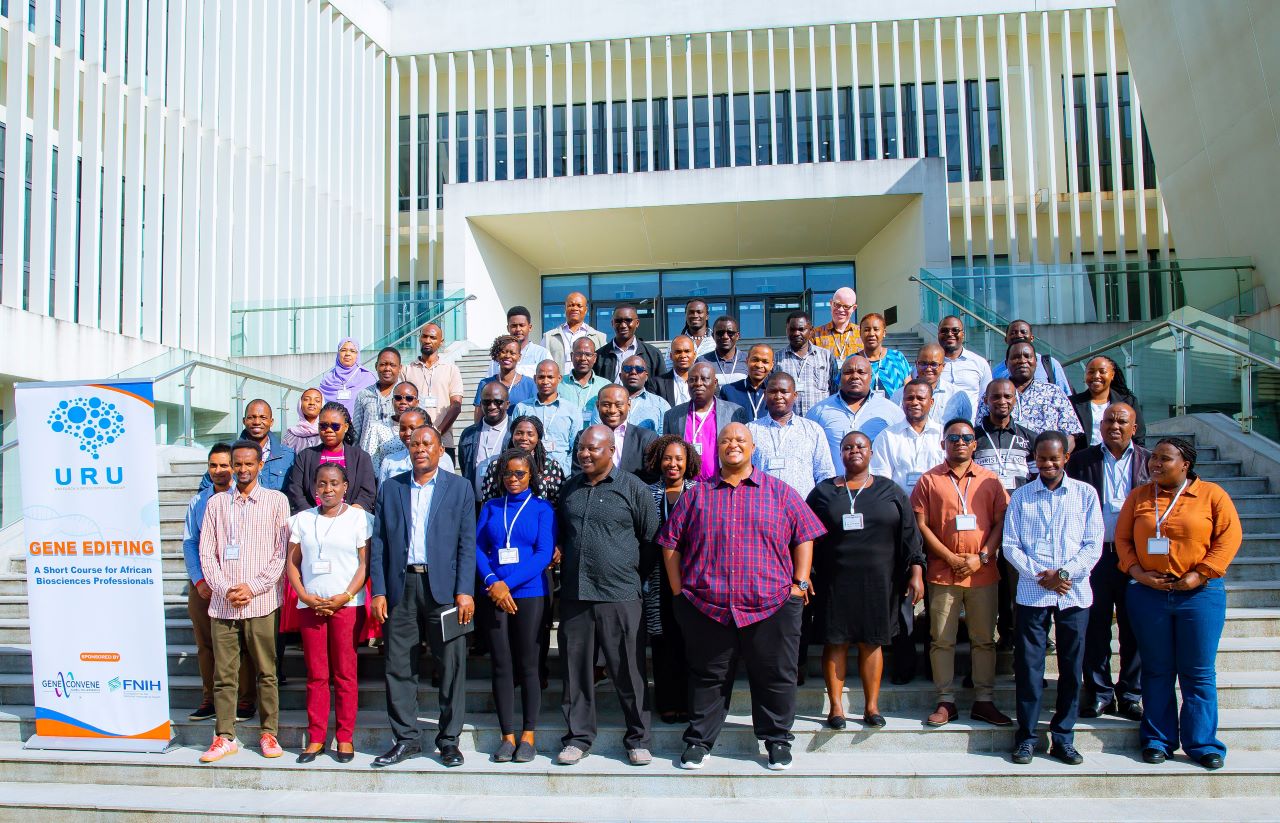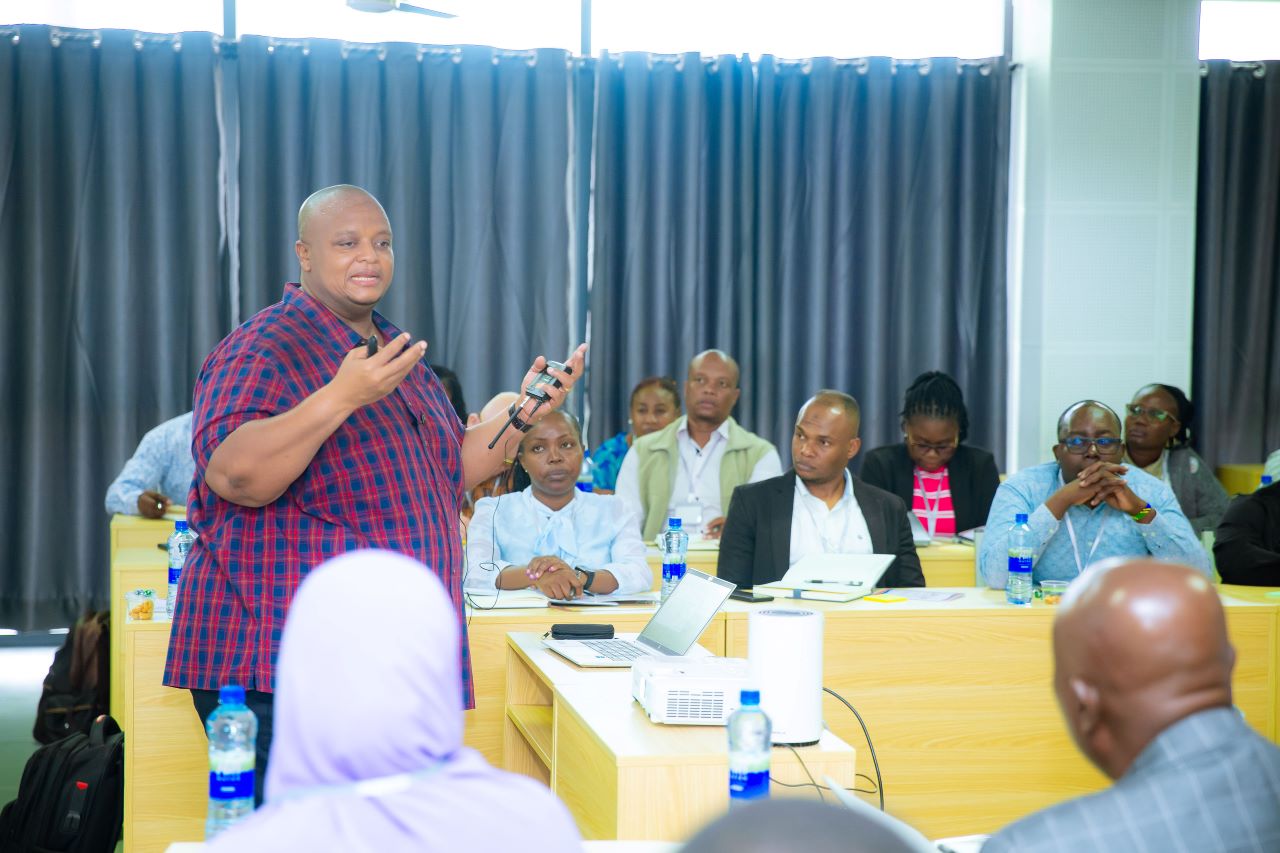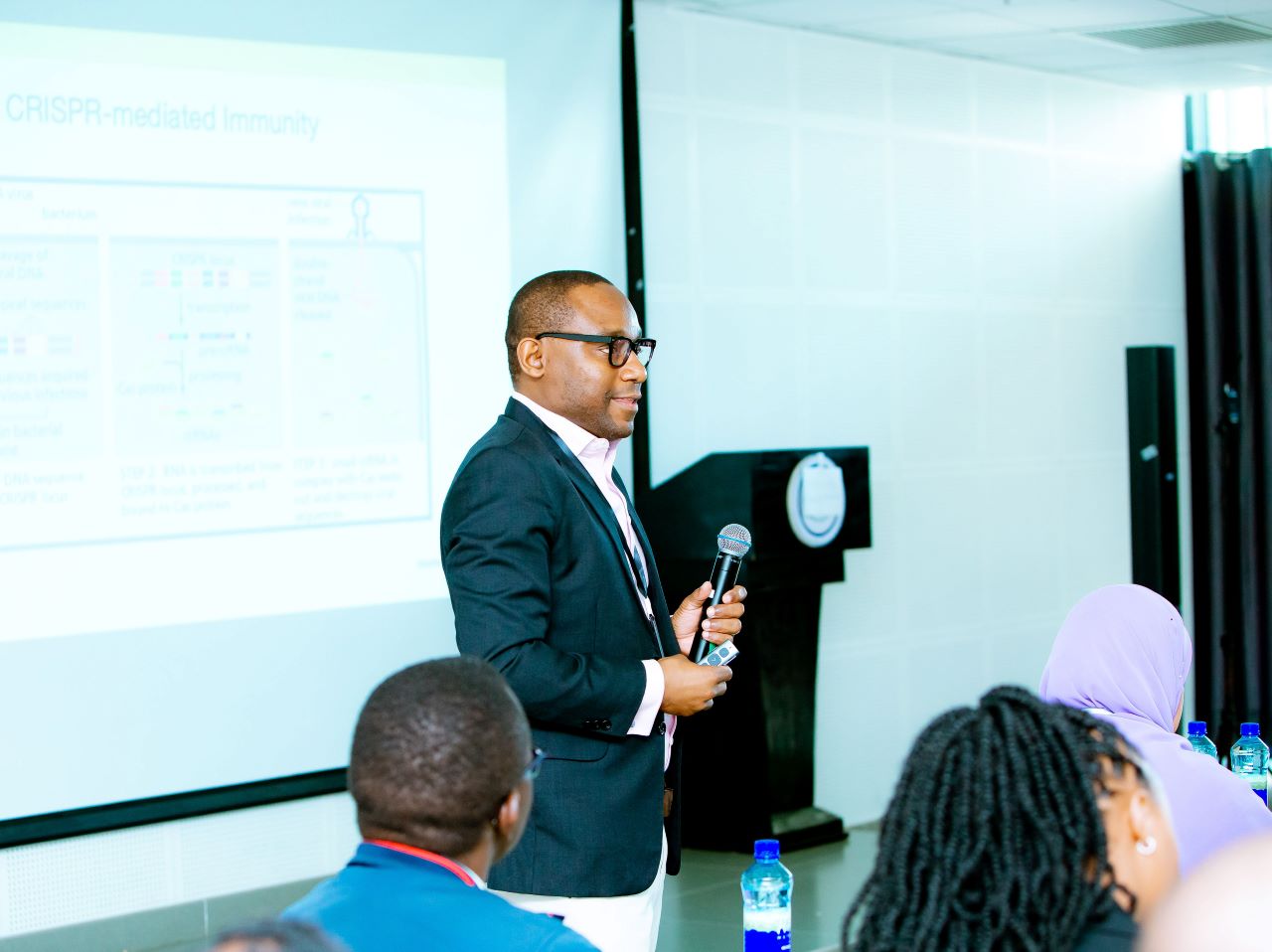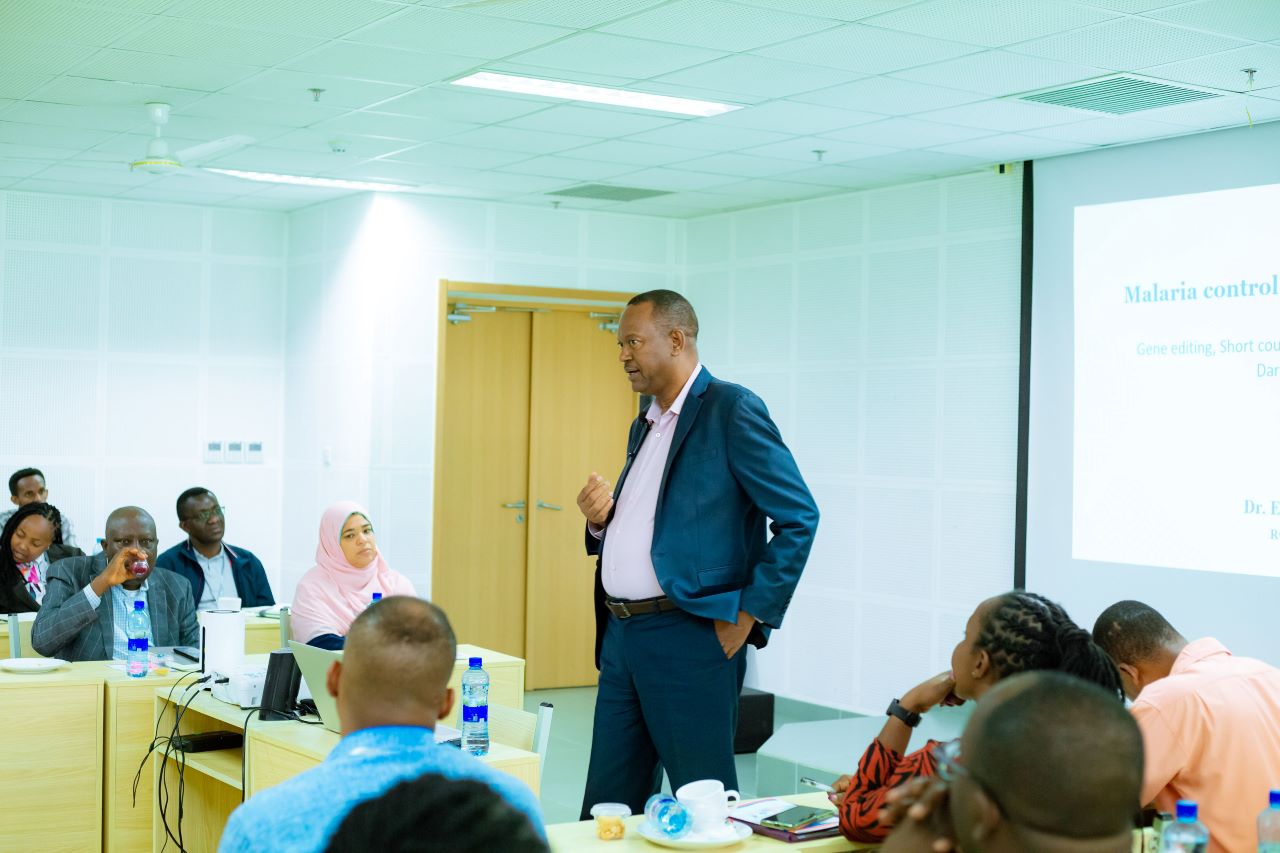In July, the GeneConvene Global Collaborative, in partnership with Uru Research and Development Group and the Department of Molecular Biology and Biotechnology of the University of Dar es Salaam (UDSM), hosted the fourth edition of Gene Editing: A Short-course for African Bioscience Professionals. This in-person course brought together over forty established science professionals from approximately twenty African countries. Among them were senior academics, researchers, regulatory and policy specialists, private sector bioscientists and experts from a variety of disciplines.

Instructors and participants of the Gene Editing Short Course for African Bioscience Professionals with the Head of Department of Molecular Biology and Biotechnology (MBB) and a representative from the Principal’s office of the College of Natural and Applied Sciences (CoNAS) at the University of Dar es Salaam. Photograph: Uru Research & Development Group
The diverse group convened at the University’s library for four days of classroom-based courses, led by myself and Dr. Brian Tarimo, Ifakara Health Institute, with the assistance of my colleagues Winnie Ernest and Dr. Juma Hussein from the Department of Molecular Biology and Biotechnology at the University of Dar Es Salaam.

Daniel Maeda explaining the major pathways used by cells to repair broken DNA and how they are utilized in genome editing experiments. Photograph: Uru Research & Development Group
Day one began with an overview of the fundamental concepts of gene editing, where we discussed the role of broken DNA in driving the gene editing process and explored the use of programmable DNA endonucleases such as Zinc Finger Nucleases, TALENs and the latest popular system of CRISPR/Cas9. The second and third days of the course focused on advancing participants’ understanding of gene editing and its applications and included more practical exercises. All sessions were designed to strengthen participants’ ease with the fundamentals of the editing systems, improve their communication skills, helping them explain gene editing technologies and their applications to address challenges in Africa, understand research articles, design exercises and deliver lectures on gene editing basics to colleagues, trainees and students.

Brian Tarimo presenting to participants on the discovery of CRISPR/Cas systems as a bacterial antiviral immunity system. Photograph: Uru Research & Development Group
On the fourth day of the course, a colloquium was held during which several African gene editing practitioners discussed their work on gene editing technologies relevant to the continent and participated in discussions with the class. The colloquium included a presentation by Emmanuel Hakizimana, Rwanda Biomedical Center, who delved into the challenges Rwanda is facing to control malaria and the need for innovative approaches such as gene drive technology to accelerate the fight against the disease. On the last day, participants had the opportunity to visit the Ifakara Health Institute’s branch in Bagamoyo to visit the institution’s transgenic mosquito facility.

Emmanuel Hakizimana highlighting malaria control challenges in Rwanda and the need for new tools. Photograph: Uru Research & Development Group
The fourth edition of this course was a resounding success, offering opportunities for knowledge exchange, skill development, and networking. The diverse backgrounds of the participants, combined with the comprehensive content and format of the classes, helped participants broaden their understanding of gene editing technologies and develop practical skills. We look forward to continuing this tradition and advancing the field of gene editing in Africa.
